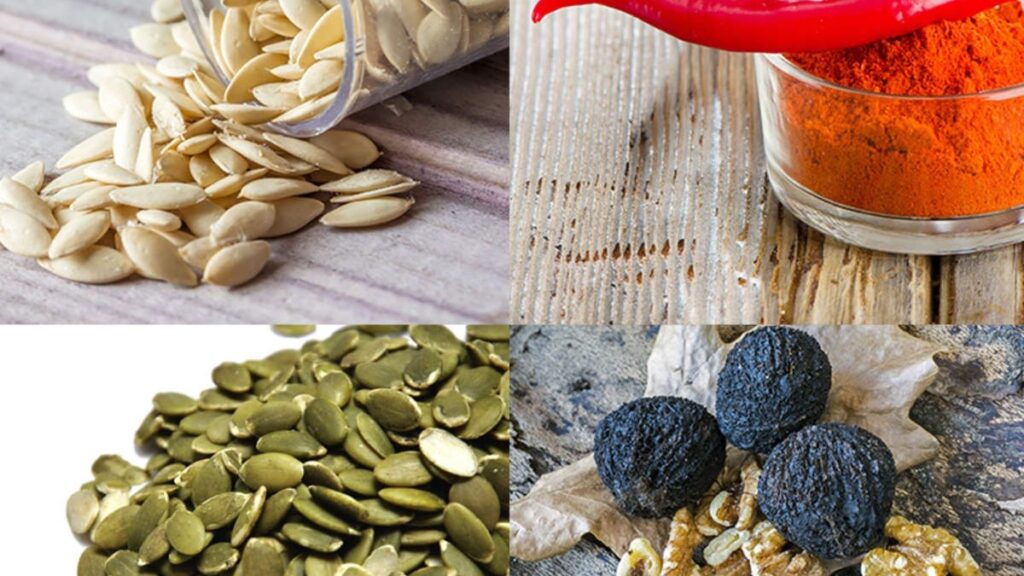Certain foods and herbs are believed to have properties that may help combat or reduce the presence of parasites in the body. Keep in mind that while some foods and herbs have shown potential anti-parasitic properties in studies, it’s essential to consult with a healthcare professional for a proper diagnosis and treatment if you suspect a parasitic infection.
Here are some foods and herbs that are often mentioned for their potential anti-parasitic effects:
1. Garlic:
Garlic is known for its antimicrobial properties, including potential anti-parasitic effects. It contains compounds like allicin that may help combat parasites.
2. Papaya Seeds:
Papaya seeds contain an enzyme called papain, which may have anti-parasitic properties, particularly against intestinal parasites.
3. Pumpkin Seeds:
Pumpkin seeds, or pepitas, contain an amino acid called cucurbitacin that may help expel certain parasites from the digestive tract.
4. Turmeric:
Turmeric contains the compound curcumin, which has anti-inflammatory and antimicrobial properties. Some studies suggest it may help combat certain parasites.
5. Ginger:
Ginger has been traditionally used to treat various digestive issues, and it may have some anti-parasitic effects.
6. Clove:
Clove oil and cloves themselves have been used to combat intestinal parasites like giardia and other worm infections.
7. Black Walnut:
Black walnut hulls are believed to have anti-parasitic properties, particularly against intestinal worms.
8. Oregano Oil:
Oregano oil contains compounds like carvacrol and thymol, which have been studied for their potential anti-parasitic effects.
9. Cayenne Pepper:
Cayenne pepper may help improve digestive health and create an unfavorable environment for parasites in the digestive tract.
10. Coconut:
Coconut and coconut oil contain medium-chain fatty acids that may help fight off parasites.
11. Pineapple:
Pineapple contains an enzyme called bromelain, which may assist in the digestion of certain parasites.
12. Wormwood:
Wormwood, specifically Artemisia absinthium, has been traditionally used as an herbal remedy for parasitic infections.
13. Neem:
Neem leaves and oil have been used traditionally to treat various parasitic infections and may have anti-parasitic properties.
It’s important to note that while these foods and herbs have shown some potential anti-parasitic properties in studies or traditional use, they should not be used as a sole or primary treatment for parasitic infections. Parasitic infections can be serious and may require medical intervention, including prescribed medications. If you suspect a parasitic infection, it’s crucial to consult with a healthcare professional for proper diagnosis and treatment. These foods and herbs may be considered as complementary or supportive measures but should not replace medical advice and treatment.
